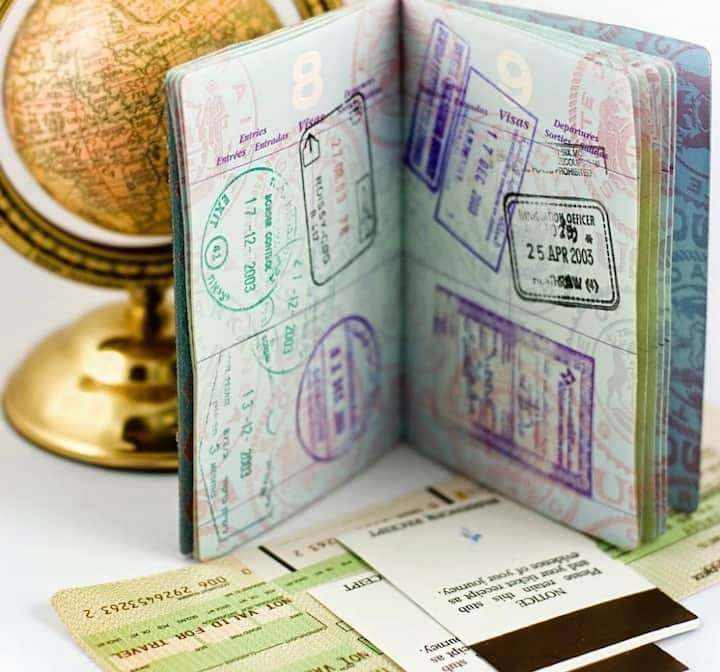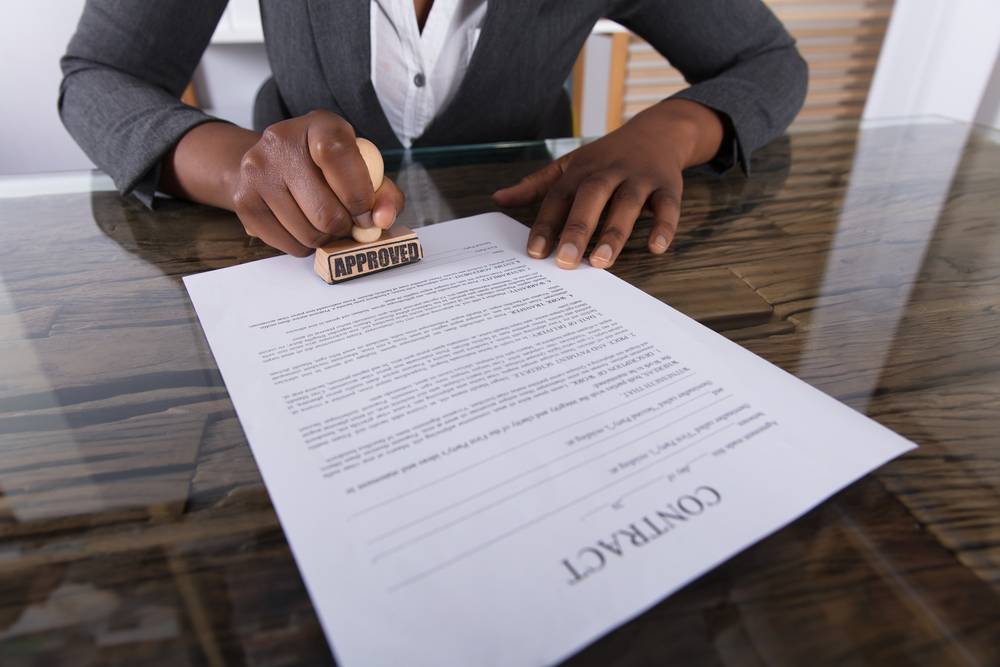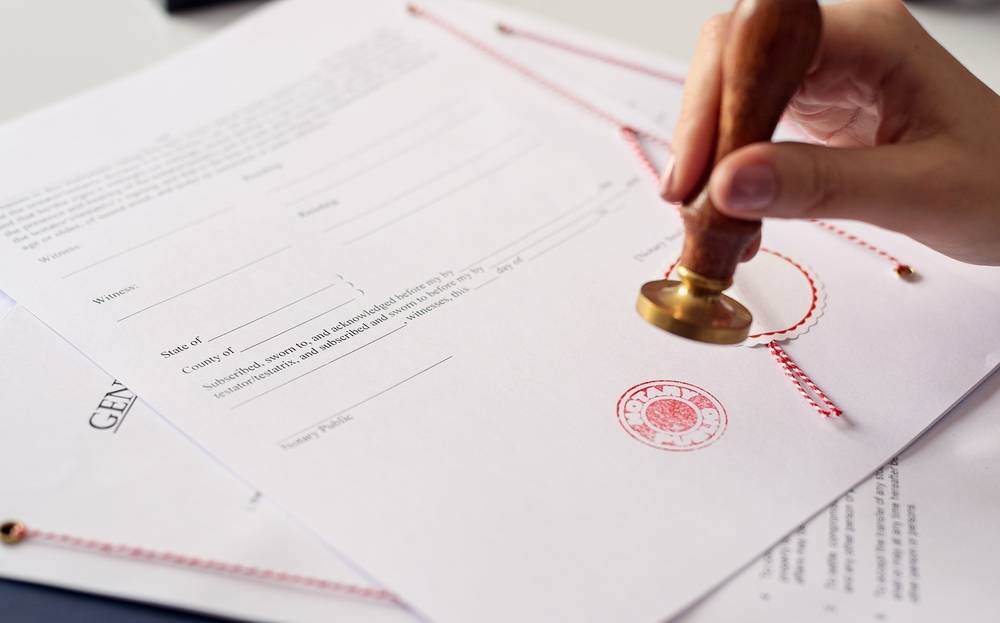It is common knowledge that the process of legalizing documents for travel, schooling, and for whatever purposes, can be a hectic journey to embark on. This is evident by the rigorous stages one has to undergo, to complete the often difficult process of legalization of documents in Nigeria.
Given that Nigeria is not a signatory to The Hague Apostille Convention, which abolishes the necessity of legalization for Foreign Public Documents.
Therefore, the apostille stamps are not issued in Nigeria. However, replacement of the apostille is verification done at the Ministry of Foreign Affairs in Abuja.
This authentication of documents can be a hard nut to crack. But I will share with you two proven ways to legalize documents in Nigeria. You will be able to swim through the murky waters of the Nigerian system easily.
In this post, you will learn the steps you need to take; how to take them; and how you can do that from your comfort zone, with zero hassle.
Legalization of Documents

Before diving into our main focus, it’s important to define what legalization of documents is, and introduce you to a few terminologies that are closely associated with it, but often misunderstood.
Legalization of documents is the process by which an intending traveller, for whatever reason, certifies or formally validates Nigerian documents that have been authenticated at the embassy of a country for its intended use.
Authentication of documents entails the procedure of certifying documents in the country of the intended traveller. Therefore, a document must be authenticated before it can be legalized.
Notarized documents are documents that have been certified by a notary public to verify their authenticity. Notarization, however, involves the presence of a witness, usually a lawyer, and record of the signing of documents to validate the process.
It’s worthy to note that notarization of documents is the first point of call for any documents intended for travel purposes, before the authentication, and legalization stages.
However, the notary public or official, will record the process in an official log, and mark the presented documents with either a stamp or an official seal.
It’s a way of ensuring that the process is devoid of fraud, and to assure the trustworthiness of documents by the requesting authorities.
But the charges for how to notarize documents in Nigeria are not fixed, as it is dependent on your bargaining power or relationship with the lawyer or notary public in question.
Validation of documents or certificate, is another word for authentication; and attestation of documents or certificate, means legalization of documents.
In Nigeria, however, authentication of documents is done at the Ministry of Foreign Affairs in Abuja. Legalization of documents is done at the Embassies and Consulates of the countries of destination.
Why Legalize a Document?
The purpose of legalizing documents is to ascertain their authenticity, and to prove to the requesting authorities that they are from the right source as claimed by the holder.
Moreover, the reason authorities demand a bearer to legalize their documents, is because the presented documents are perceived as illegal until proven otherwise by the holder.
In the past, many institutions have been swindled by fraudsters who by-pass the authorized process of authentication of documents. Thus, authorities, now demand that all applicants go through the right process to make them fraud free.
Therefore, if you have been asked by anybody to present an apostille in Nigeria, it means bearing a worthy witness who attests to the legitimacy of your documents.
What Documents Can be Legalized in Nigeria?

The following list captures the sort of documents that can be legalized in Nigeria. Although, it may not be an exhaustive list, it’s the most common ones.
- Birth Certificate or Declaration of Birth Certificate
- Change of Name Certificates
- Marriage Certificate
- Divorce Certificate
- Single Status Affidavit
- Adoption Papers
- Patent Application
- Death Certificate
- Police Character Certificate
- Nigerian International Passport Data Page
- Academic Documents (results certificates and transcripts, etc)
- Incorporation Documents
- Authorization Letters
- Declaration of Assets
- Bank Statements
- Powers of Attorney
- Criminal Record Check Certificates
- Citizenship and Immigration Documents
- Corporate Documents
- Medical Reports
- Contract Papers or Agreement; etc.
Steps to Legalize Documents in Nigeria
Before getting into the two proven ways to legalize documents in Nigeria now, let’s identify the important authorities in the legalization and authentication process of documents in Nigeria.
Legalization of Document Authorities:

Ministry of Education: The Ministry of Education, carries out authentication procedures on education or academic certificates presented by the would-be traveller. However, it applies only to educational purposes.
Ministry of Foreign Affairs: Here, the authentication of documents is presented to the Ministry for proper validation, before it goes to the final destination, where the legalization of the document is done.
The Embassy or Consulate of the Destination Country: This is the final stage of the documentation process, where legalization of documents takes place. The officials of the destination country will see to this final process.
Step One — Do-it-Yourself
- As established earlier, notarization of documents is the first point of call. Therefore, get a Notary Public to notarize your documents. However, that can only happen, if it is required by the authorities in the country of your choice. Otherwise, you may skip this particular step.
- Proceed with the document to the Ministry of Foreign Affairs headquarters in Abuja to complete the authentication process at the Ministry.
- While at the ministry, you will be given a cost quote for the document(s) you wish to authenticate, which is priced per page, and then make a Remita (a CBN-licensed e-payment solution) to the designated government account.
- After that, you will be given a form to fill. The filled out form, which will be provided by an assigned officer of the Legal Services Department (LSD), is to be submitted there, alongside proof of payment (e.g. bank deposit tellers) and you will then receive an acknowledgment receipt from the ministry.
- Proceed to the relevant embassy or consulate to apply for the document to be legalized. However, you will be asked to pay the prescribed fees there. They will determine the cost, but it’s not a backbreaking amount.
In the case where a birth certificate, police character certificate, or marriage certificate has to be legalized for travel purposes. It must first be notarized by a notary public, then get it validated at the Federal Ministry of Foreign Affairs, and finally legalized by the embassy or consulate of the country of designation.
You will have to submit the document(s) for authentication at the required LSD desk at the ministry, and you will be notified when the document has been authenticated.
In an instance where the document presented, is to be certified through a lawyer or agent, the Power of Attorney may be given to such an attorney.
However, there is no assurance that the document(s) authentication will be ready at the prescribed date. This means that you will have to either wait or make several trips to the ministry to complete the process.
Finally, the period of document(s) authentication in Nigeria is subject to the type of document(s) presented. This is because different documents necessitate their own follow-up actions at the ministry.
But you can save yourself from all the stress and rigours of moving here and there, if you follow the second step below. It will save you time and stress.
Step Two: Use Our Legalization Service
This step is simple, and stress-free. It involves letting a trusted agent like Help Me Waka, help you with the difficult process of legalizing documents in Nigeria.
Help Me Waka is an errand/delivery agency that helps Africans in the Diaspora carry out a variety of errands in their home country. (Now in Nigeria and Ghana).
Regardless of the type, distance, and nature, we can be trusted based on our track record of fast service delivery.
To use our services, all you have to do is follow these simple steps below:
- Visit our website at www.HelpMeWaka.com.
- Click on Post an Errand and click on the Legalization/Apostilles menu, then click on the appropriate tab.
- Enter your correct details to create a new account (You will be redirected to your dashboard).
- Fill in all the relevant information, such as contact person; telephone number etc.
- Make the necessary payments online. Your request will be assigned to one of our staff and the work starts.
- Get your legalized documents with full details and feedback.
Should there be a dispute with the request, you can email us at helpme@Helpmewaka.com.
Conclusion
To effectively legalize documents in Nigeria for travel purposes, make sure to do a proper check on all the documents you intend to submit for notarization, authentication, and, of course, legalization, to avoid rejection.
But remember, not all documents are appropriate for legalization. Some embassies or consulates may not legalize any documents that violate their domestic laws or material they deem to cause harm to their citizens or integrity as a country.
Similarly, any document bearing an unusual seal or stamp that differs from those used by the Ministry of Foreign Affairs will be disqualified for legalization.
This also calls for the need to let a trusted errand service with a proven record of integrity and an unbeatable service delivery like Help Me Waka, help you on this journey.
I trust you will think Help Me Waka when you need to legalize documents in Nigeria, especially when you want to get things done faster and efficiently.
 Nigeria
Nigeria Ghana
Ghana



